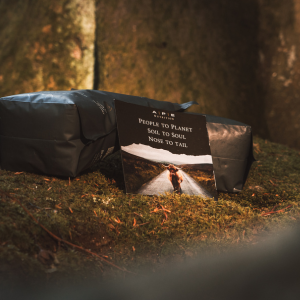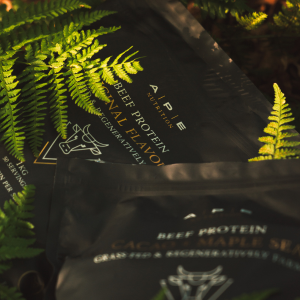Better Sleep = Better Everything...
Evenings can easily get chaotic. Whether that's preparing for the following day, taking kids to sports, going to the gym, making dinner, etc. Often this is unavoidable, but there's some easy adjustments everyone can make to enable the body to relax and get into deep sleep regardless. Alongside nutrition, sleep is the most powerful tool for recovery both mentally and physically so it's vital to get right as much as possible.
Here are a few tips we recommend when it comes to your evening routine:
✅ Eat your last meal 2-3 hours before bed. Our digestive system also 'sleeps' and if we eat too late, it continues working whilst we're in bed, not allowing our body to fully rest and recover.
✅ Avoid looking at blue light from screens for as long as possible before bed (realistically we aim for 60-90 mins). Our bodies naturally release melatonin (a hormone that helps us sleep) when the sun goes down. However, our eyes don't know the difference between blue light from screens and the light from the sun. Therefore, when we look at blue light after the sun goes down, melatonin doesn't get released as it's supposed to and as a result we can find it hard to sleep. My favourite hack for this is wearing Blue Light Blocking glasses. I got mine from the brand Bon Charge. We have a discount code set up fro them it's APE15, which will get you 15% off site wide. Additionally, using naturally scented candles in your bedroom and switching your phone to red light mode can also help!
✅ Where possible get outside to view the sunset. Similarly to exposing our eyes to the morning light, exposing our eyes to the evening light also helps to support our circadian rhythm.
✅ Having a gentle stretch and breathing routine - this helps to calm the nervous system, mind, and body before bed. If you’ve ever been to a yin yoga class you’ll know what we’re talking about when it comes to how relaxing a gentle stretch can be. Click here for a FREE evening movement routine by our very own APE team member, Anna.*
✅ Eat your last meal 2-3 hours before bed. Our digestive system also 'sleeps' and if we eat too late, it continues working whilst we're in bed, not allowing our body to fully rest and recover.
✅ Avoid looking at blue light from screens for as long as possible before bed (realistically we aim for 60-90 mins). Our bodies naturally release melatonin (a hormone that helps us sleep) when the sun goes down. However, our eyes don't know the difference between blue light from screens and the light from the sun. Therefore, when we look at blue light after the sun goes down, melatonin doesn't get released as it's supposed to and as a result we can find it hard to sleep. My favourite hack for this is wearing Blue Light Blocking glasses. I got mine from the brand Bon Charge. We have a discount code set up fro them it's APE15, which will get you 15% off site wide. Additionally, using naturally scented candles in your bedroom and switching your phone to red light mode can also help!
✅ Where possible get outside to view the sunset. Similarly to exposing our eyes to the morning light, exposing our eyes to the evening light also helps to support our circadian rhythm.
✅ Having a gentle stretch and breathing routine - this helps to calm the nervous system, mind, and body before bed. If you’ve ever been to a yin yoga class you’ll know what we’re talking about when it comes to how relaxing a gentle stretch can be. Click here for a FREE evening movement routine by our very own APE team member, Anna.*
*For me personally having an evening routine was the missing piece of the puzzle for so long. I was doing everything above as well as implementing the sleep environment tips listed below, but my sleep still wasn't great. I knew adding in some working-in practises before bed would help but it always seemed like a chore after a long day. However after a run of particularly bad sleep, I knew something had to change, so I committed to dialling back work hours for a week so I had the energy to properly throw myself into a new practise. I decided that at 8:30pm I would put my phone on aeroplane and red light mode, light some candles and go into the bedroom to do 30 minutes of stretching / foam roller, followed by 30 minutes of gentle breath-work and meditation. Instantly this was a complete game changer for my sleep, energy levels the next morning and overall wellbeing. I've kept it up ever since and ironically I've been able to stick to working less hours as I'm now more productive in the hours that I work. The reason I mention this is not necessarily to say if your sleep isn't great, this is what you need. It might be, but I feel like the lesson here is more it's probably what you're not doing that you need the most. So a good question to ask yourself is of everything above or below, what's the missing piece of the puzzle for me...
Okay Okay But Is Sleep Really THAT Important?
Yes, according to Andrew Huberman and sleep Expert Matt Walker, similarly to the downstream benefits a healthy and functioning gut can have on the rest of the body, sleep's benefits are off the charts when it comes to the impact poor sleep can have even after just 1 night, let alone the cumulative impact. Sleep quality affects our endocrine system, cognitive function, memory, digestion, emotional wellbeing, immune function and so much more!
Take a moment and think about how you operate when you haven't slept well, when you've tossed and turned all night, and thought about how much you regretted that late-night meal you had right before crawling into bed VS how on it you feel when you've implemented even the simplest of evening routines and woken up feeling rested, clear and alert.
How To Create A Deep Sleep Environment
Where you sleep is really what brings everything we've mentioned together, because if we’re making sure we aren’t eating late, we’re off our phone, etc but then we’re headed into a hot, bright and loud room we aren’t going to sleep, at least not well!
So here is our Ultimate Sleep Environment setup:
🥶 Cool/cold room temperature - if you want to get specific Dr Andrew Huberman recommends 18.3 degrees celsius.
🕯️ No blue light - candle light is ideal but salt lamps with a warm bulb can also create a soft light atmosphere especially if you like to read or journal before bed.
🌑 Make your room as dark as possible - blackout blinds or an eye mask are are ideal.
🚫 Turn the wifi off in your house and don't have any electronics on in your bedroom - this includes having chargers, lamps, etc plugged in and switched on.
🔕 Make sure your room is quiet and you're not going to be disturbed by noises in the night. If you live on a loud street, get yourself some ear plugs!
Bonus: Try adding some magnesium bi-glycinate (dosage is 10mg/kg of body weight/day). Magnesium is an essential mineral that helps your body relax and the bi-glycinate/threonate versions are the best for sleep.
Other supplements that we’ve tried and found helpful are medicinal mushrooms like Chaga and Reishi, which you can find in our Dusk capsules. Both of these mushrooms support rest, recovery, and deep sleep.
As medicinal mushrooms become more mainstream, research is offering more substantial evidence of the impact Reishi can have on improving sleep and restlessness (study). Chaga on the other hand is proving to be a remarkable support for the immune system (study) and provides calming effects on the nervous system.
Dusk can support you with:
😴 Recovery, Rest & Deep Sleep
✅ A Potent Blend of Antioxidants
🧠 Soothing Your Nervous System
😴 Recovery, Rest & Deep Sleep
✅ A Potent Blend of Antioxidants
🧠 Soothing Your Nervous System
💪 Provide Immune Support
Happy sleeping!
– The APE team






